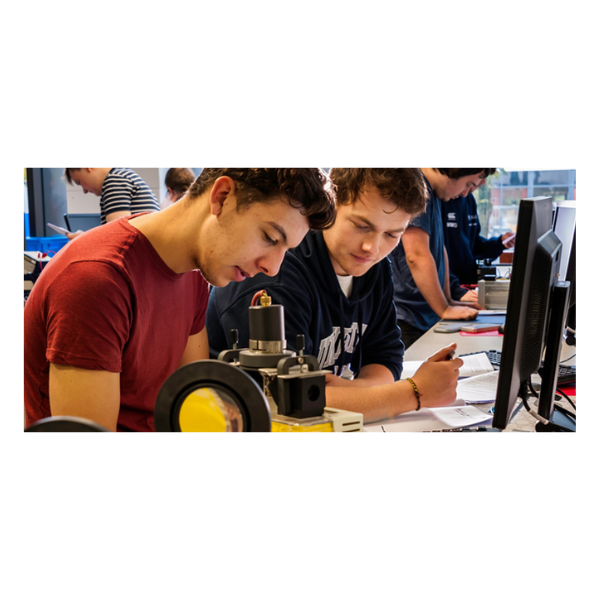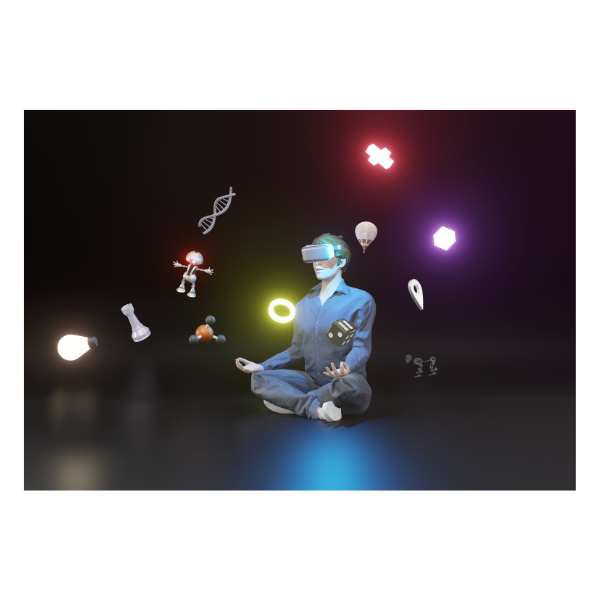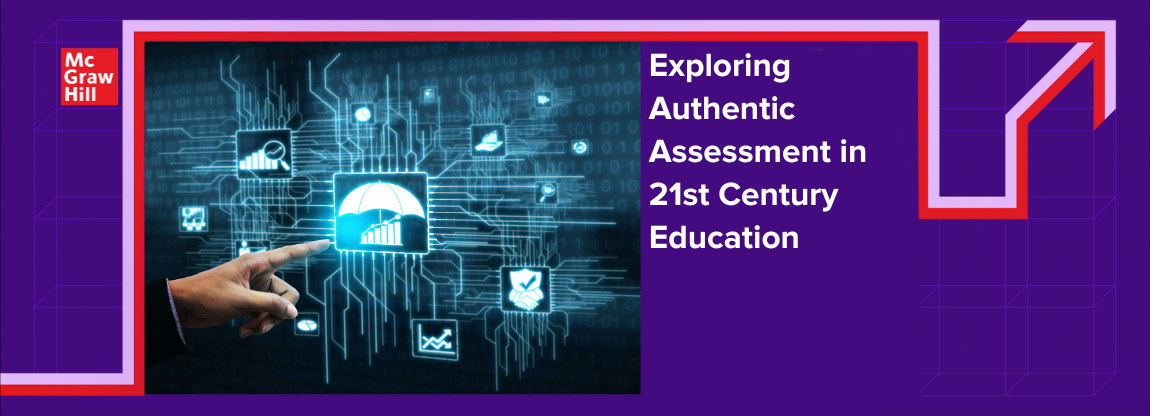Exploring Authentic Assessment in 21st Century Education
Exploring authentic assessment in 21st century education
We’ve all heard of authentic assessment in educational circles, but should it be integrated into your course, and why?
Let’s explore what authentic assessment is and how it encourages students to become lifelong learners. We’ll also examine its future as we explore new pathways for 21st century learning.
What is authentic assessment?
An “authentic” assessment is one that requires the application of specific skills and competencies in a new situation. It requires students to use judgment to determine what is relevant in solving realistic problems. Students actively participate in real-world situations, applying principles they learned during their course.
Authentic assessment could involve open-ended tasks like presenting, creating, designing or producing. But, importantly, the successful application of knowledge demonstrates that students have truly understood the content and concepts they have learned and are not simply regurgitating facts they have memorised.
The idea is to mimic what they may later encounter in professional life, thus preparing them with an adequate repertoire of knowledge and skills. Ultimately, this serves as motivation for the students. They see that what they are learning has a real purpose, and they will have real-world skills.


Time to re-evaluate traditional assessment?
Traditional assessment types such as multiple-choice, fill-in-the-blanks, true-false, or matching, remain common in education, relying on each student’s ability to memorize information and select answers, measuring what they remember on that day. Nerves, circumstances or momentary failure of memory may thwart their chances of success in traditional assessment. This type of assessment is increasingly being seen as unrealistic and outdated.
A new type of testing to prepare students for an evolving world of work
Should we embrace authentic assessment, even if it means changing the habits of a lifetime?
We argue yes – if only for the reason that authentic assessment can be an incredibly useful tool for the 21st-century student. This generation is entering a complex and ever-evolving world of work, where the ability to think critically, solve problems and be creative is key.
The demand for these competencies is rising as higher-level analytic and interactive tasks prevail. Students must be ready to perform in the unpredictability of real-life situations.
The more practical experience that they can gain in their education, the better prepared they will be for the workplace – both physically and mentally.
Examples of authentic assessment
Authentic assessment suits a number of disciplines, and there are some excellent examples of educational institutions putting this new and upcoming idea into practice.
The University of Liverpool has implemented authentic assessment across its departments. For instance, students from different disciplines applied theory to practice by taking part in a real-world project on environmental sustainability on campus. In this project, interdisciplinary and intercultural groups shared their ideas and expertise to develop and present their designs to staff and clients. This type of assessment, developing employability skills, was found to be engaging and motivating for students.
Similarly, a new mathematics module engages students by focusing on employability and specific skills. Designed in collaboration with industrial partners, students work on genuine mathematical problems that graduates face in employment. It involves three group projects and an individual employability skills portfolio.
Keele University is another institution putting authentic assessment into practice. Second-year MChem students are offered a module on Industrial Chemistry, in which they study various aspects of industrial processes and their environmental sustainability. The module has a heavy emphasis on workplace skills and knowledge, such as:
- teamwork
- finance
- legal aspects and patents
- health and safety
- project planning
- designing a research program
These run alongside activities focused on recruitment practices and career development.
Elsewhere, students from the Media, Communications and Culture program work with community partners to produce documentaries about a theme related to the city. This type of project has been shown to enable meaningful engagement between students and the community, contributing and collaborating as active citizens.
Lastly, a module for Computer Science students replicates a professional software development project. This requires students to allocate roles, conduct formal meetings with clients, follow real brand guidelines and present and demonstrate the prototype. The aim is to develop the soft skills required for employment alongside the technical skills.




Higher education in the 4th Industrial Revolution
Due to the acceleration of the information age, there is a major growth in technology-based higher education. These developments provide both demand and opportunity for universal and lifelong learning. Many higher education institutions are undergoing significant changes to address these.
With the 4th Industrial Revolution evolving at an unstoppable pace, innovators all over the world are adapting rapidly in order to keep up with the new landscape.
From AI to the metaverse, and even the normalization of remote work, the world and the workforce are fast changing all around us. Employers are looking for tech skills, digital literacy and soft skills such as problem-solving, teamwork and communication.
Moreover, the communication age has opened up a global job market. But job seekers are not only competing with candidates from all over the world; they are also at the mercy of advanced computer systems.
Increasingly able to perform tasks previously occupied by humans, this technological advancement reduces the types of jobs available to workers and forces them to consider their education and options carefully.


Online authentic assessment
In today’s evolving business landscape, we know that success in getting a job goes well beyond the degree. As a company that considers cause and career - alongside access and achievement, being and belonging - to be key elements of successful Higher Education, we are proud to support our partners with digital resources to supercharge students’ employability. By tailoring learning solutions to the ever-changing needs of employers and long-term trends in technology, society, and the economy, we aim to partner and help build better students, schools, and leaders.
As we’ve seen from the examples above, creating authentic assessment opportunities can be extremely worthwhile but often come with a hefty set-up cost or require intense management. Our online learning platform Connect (which integrates seamlessly with your VLE) offers several tools to help you design and deliver innovative authentic assessments on a smaller scale, with project-based simulations and application-based activities, and GoReact software that allows you to assess practical work remotely.
Discover more about how Connect can support innovative assessment: https://www.mheducation.co.uk/higher-education/learning-solutions/connect



